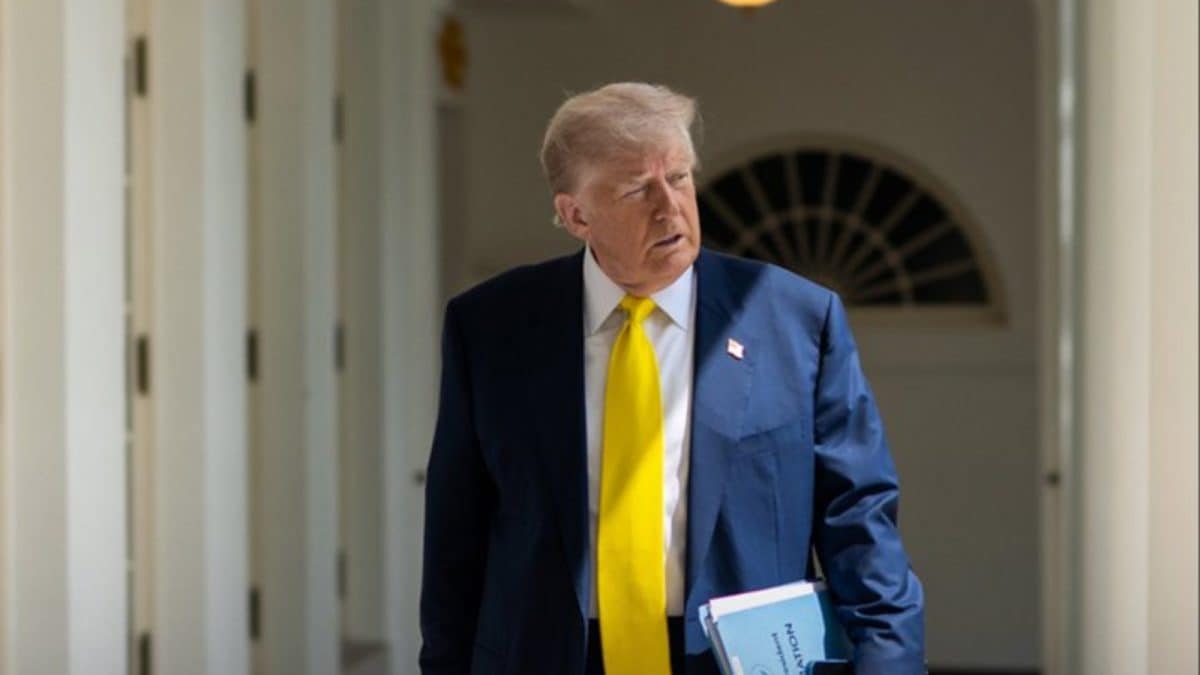ARTICLE AD BOX
Last Updated:October 27, 2025, 19:22 IST
The applicant told court that she had invested Rs 1,98,516 through WazirX in January 2024, and her coins were frozen after the exchange reported a cyberattack in July 2024

The court further ruled that user assets, which were not affected by a cyberattack on the WazirX exchange operated by Zanmai Labs Pvt. Ltd., could not be frozen or adjusted to offset the platform’s losses.
The Madras High Court has held that digital assets qualify as “property" under Indian law and are capable of being held in trust.
The court further ruled that user assets, which were not affected by a cyberattack on the WazirX exchange operated by Zanmai Labs Pvt. Ltd., could not be frozen or adjusted to offset the platform’s losses.
Justice N. Anand Venkatesh passed the order on October 25 in Rhutikumari vs. Zanmai Labs Pvt. Ltd. and others case, while dealing with an application filed under Section 9 of the Arbitration and Conciliation Act, 1996.
The applicant, Rhutikumari, sought an injunction restraining the WazirX exchange and its directors from interfering with her cryptocurrency holdings of 3,532.30 XRP coins stored on the platform.
The applicant told the court that she had invested Rs 1,98,516 through WazirX in January 2024, and her coins were unlawfully frozen after the exchange reported a cyberattack in July 2024. WazirX announced that the hack had led to the theft of Ethereum and Ethereum-based tokens (ERC-20 coins) worth about USD 230 million. Following the attack, user accounts were blocked to prevent withdrawals or trades.
Zanmai Labs, represented by Senior Advocate Satish Parasaran, argued that the company merely acted as a distributor in India, while custody of users’ digital assets was maintained by a Singapore-based entity, Zettai Pte. Ltd. The respondents said that after the cyberattack, Zettai had approached the Singapore High Court, which approved a “scheme of arrangement" for proportional distribution of assets among affected users.
However, the applicant’s counsel, Advocate D Ravichander, contended that her assets were XRP coins and not ERC-20 tokens, and that freezing her account amounted to wrongful interference with her property. He also argued that part of the cause of action arose in Chennai, since the funds were transferred from her local bank account and the WazirX app was accessed from within India.
Rejecting the maintainability objection, the court held that the application could be entertained under Section 9 since the applicant’s assets were situated in India. Citing PASL Wind Solutions (P) Ltd. v. GE Power Conversion India (P) Ltd., the court observed that even in cases where arbitration is seated outside India, Indian courts may pass interim orders when assets within their jurisdiction require protection.
“In the light of the said judgment of the Hon’ble Apex Court, the above application filed under Section 9 of the Act is maintainable before this Court," Justice Venkatesh said.
The judge then examined in depth how courts worldwide have defined the legal nature of cryptocurrency, referencing rulings from the UK, Singapore, the US, and New Zealand. Referring to Ruscoe v. Cryptopia Ltd. (in Liquidation), the court quoted the New Zealand High Court’s finding that digital tokens “are a type of intangible property… more than mere information… capable of being held on trust".
Applying this reasoning, the Madras High Court said, “Judging from the above two decisions, there can be no doubt that ‘cryptocurrency’ is a property. It is not a tangible property nor is it a currency. However, it is a property, which is capable of being enjoyed and possessed (in a beneficial form). It is capable of being held in trust."
The court noted that under Indian law, cryptocurrencies are recognised as “virtual digital assets" under Section 2(47A) of the Income Tax Act, 1961. It recorded that WazirX was registered as a reporting entity with the Financial Intelligence Unit of India, while neither Binance nor Zettai held such registration and therefore lacked authorisation to handle digital assets in India.
On the key issue of whether losses from the ERC-20 token hack could be distributed across users holding other assets like XRP, the court found no justification. It observed that the applicant’s portfolio comprised XRP coins, which were not among those stolen, and thus her holdings could not be frozen to “socialise" the losses of the exchange.
Justice Venkatesh referred to the Bombay High Court’s decision in Zanmai Labs Pvt. Ltd. v. Bitcipher Labs LLP (decided on 7 October 2025), which had also refused to uphold the same “socialisation" principle. The Bombay High Court had observed that spreading losses among unrelated users was unsupported by contract and that crypto assets held by investors were meant to be held “in trust with a fiduciary duty owed to the owners."
Echoing that reasoning, the Madras High Court observed that using assets of unaffected investors to compensate others “is not something even on the face of it [that] lends itself to a reasonable acceptance".
Recognising Rhutikumari’s XRP holdings as her personal property, the court directed Zanmai Labs Pvt. Ltd. to furnish a bank guarantee for Rs. 9,56,000 in her favour, to be renewed periodically until the conclusion of the arbitral proceedings.
The court clarified that its interim order would remain in effect until the arbitral tribunal was constituted and passed its own directions. The matter, therefore, will now proceed before the arbitral forum as per the dispute resolution clause in the WazirX user agreement.

Salil Tiwari, Senior Special Correspondent at Lawbeat, reports on the Allahabad High Court and courts in Uttar Pradesh, however, she also writes on important cases of national importance and public interests fr...Read More
Salil Tiwari, Senior Special Correspondent at Lawbeat, reports on the Allahabad High Court and courts in Uttar Pradesh, however, she also writes on important cases of national importance and public interests fr...
Read More
First Published:
October 27, 2025, 19:22 IST
News india Is Cryptocurrency Legally Protected Property In India? Madras HC Says Yes
Disclaimer: Comments reflect users’ views, not News18’s. Please keep discussions respectful and constructive. Abusive, defamatory, or illegal comments will be removed. News18 may disable any comment at its discretion. By posting, you agree to our Terms of Use and Privacy Policy.
Read More

 20 hours ago
4
20 hours ago
4








 English (US) ·
English (US) ·